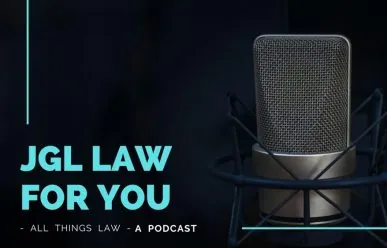In Maryland, a protective order is an important legal tool that helps keep people safe from different kinds of abuse and harassment. It’s similar to a restraining order and tells someone to stop certain actions against another person. Whether you’re dealing with threats, harassment, assault, or other abusive behaviors, knowing how to get and use a protective order is essential for your safety.
Who Can Get a Protective Order?
To qualify for a protective order in Maryland, you must have a specific relationship with the person causing harm. This can include being married, divorced, or separated; related by marriage, blood, or adoption; living together in a sexual relationship; parents of a child together; victim of recent (within 6 months) sexual assault; or vulnerable adults. If your relationship doesn’t fit these categories, you might be eligible for a peace order instead, which covers disputes with neighbors, strangers, or non-intimate dating partners.
What Counts as Abuse?
Before a court will give you a protective order, you need to show that the other person has done something abusive. This could be assault, threats of harm, sexual offenses, stalking, false imprisonment, or sharing intimate photos or videos without your permission.
How to Apply for a Protective Order
To start the process, you must fill out a Petition for Protection from Domestic Violence and an Addendum-Description of Respondent form. You can get these forms at the courthouse or online. If revealing your address could put you in danger, you can ask to keep it private or use the Safe-At-Home program for extra protection.
Filing and Electronic Options
Maryland has made it easier to file a protective order. You can submit your forms electronically from approved places like domestic violence prevention programs or hospitals. Courts also hold hearings over video to make sure you can get help quickly, even outside of normal court hours.
What Happens Next?
Once you file, a hearing is set up quickly to review your situation. The court might issue temporary orders right away, like orders to stay away or leave a shared home. Temporary orders usually last about a week. After that, there’s a final hearing to decide if a longer-term protective order is needed.
Long-Term Protection and Changes
If a judge determines that abuse has occurred, they have the authority to issue a protective order valid for up to one year in Maryland. This order may include provisions such as instructing the abuser to cease abusive behavior and threats, stay away from you, your home, workplace, and your children’s schools, grant temporary custody of children and pets to you, provide financial support, surrender firearms, mandate participation in counseling programs, and impose any other measures necessary for your protection. Both you and the abuser will receive copies of the Protective Order at the hearing, ensuring you have legal documentation of the court’s directives to keep with you at all times.
Responding to a Protective Order
If you get served with a protective order, read it carefully and prepare for the hearing. This isn’t a criminal charge, but it’s serious. It’s a good idea to talk to a lawyer to understand what to do next.
Where to Get Help?
If you’re dealing with domestic violence or need more info about protective orders, there are places that can help. Organizations like the House of Ruth and the National Domestic Violence Hotline offer support and answers to your questions. You can also speak with an attorney in our office.
Following the Rules and Making Changes
Breaking a protective order can lead to criminal charges, like going to jail or paying fines. You can also ask the court to enforce the order if it’s broken. If you need changes to an order, you can ask the court to make them.
In Conclusion
Understanding how to get and use a protective order in Maryland means knowing your rights, the legal steps, and where to find help. By taking action, you can get the protection you need and stay safe in tough times. For more details or specific questions, please reach out to the attorneys at our firm, we are happy to help.
Protective orders are important tools to stop domestic violence and help victims find safety and peace. Knowing these steps lets you take charge and make a safer future for yourself.



